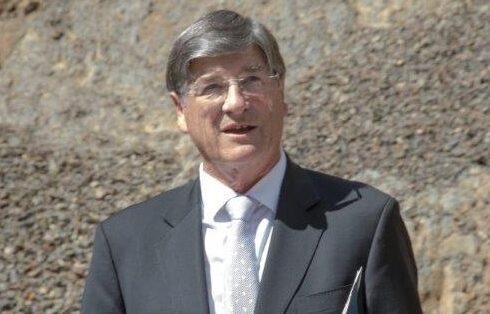For young (and perhaps not so young) leaders wanting to move into a top job, it appears that it’s your ability to deliver that is pivotal for any CEO role.
In the second article in our So, you want to be a CEO series, Management asked global head-hunter and highly experienced executive search consultant, John Peebles, for his advice to leaders wanting to move into the C-Suite.
What do you believe are the three most pivotal things young leaders can do to enhance their career?
- Show a willingness to listen and learn.
- Understand it’s about the people – customers and colleagues.
- Focus on the essential outcomes of your role and deliver.
Of these three, the ability to deliver will get you everywhere and is the one factor to focus on. Get a reputation for doing the right things, i.e. getting it done.
Why/how will these three things make a difference?
We never stop learning and the best ideas often come from the fringe not the centre, i.e., they are not generally yours and giving credit to the person for an idea enhances your own credibility and leadership image. Use the thoughts of your people and their collective wisdom.
It’s all about people – staff support helps you achieve your goals. You exist for the customer but the customer expects ALL of your people to believe he/she is the most important thing to your business.
Business works in society with the permission of society (corporate social responsibility.) Think about the wider community and how you can make sure you are seen as a citizen worth partnering with, worth supporting, worth working for.
This focus is vital in your strategic thinking.
Is it the same for everyone wanting to climb the corporate ladder, or does it depend on the type of leadership they are seeking?
Leadership styles can be different in different environments. For a corporate executive the style that works best is the “Mandela” technique – lead from behind. It’s worth studying. Let others rush out in front and do things, just guide them gently from behind and keep them focused on the goal.
Some people talk of herding cats but I prefer: “We are all eagles but let’s fly roughly in the same direction.” The leader sets that direction with the team and guides them to the goal they have set – even if the odd diversion occurs.
“failure to deliver kills chief executives…”
What do you believe can be the biggest mistakes aspiring leaders make?
Fail to deliver. I have seen many successful people who have achieved much. They have one common feature – they just work harder at it than others. People will forgive most things except performance failure. A comprehensive survey from Fortune magazine made this quite clear – failure to deliver kills chief executives.
And what are some of the pitfalls they are likely to encounter?
Pitfalls come in many forms – otherwise managers would be redundant. Just focus on the end goal and overcome the obstacles – one at a time. Your people will help you do this. Ask them if they know how to beat a problem or issue. Together find the solution.
With all your experience working with leaders, over the years are you seeing greater emphasis on any particular skills that are needed in potential CEOs?
It never changes—it is still all about “passion for the role” or “insanity in the appropriate direction” (see JAC Brown, The Social Psychology of Business).
Insanity or passion to deliver is still the key feature I look for in aspiring and existing chief executives. Forget the job description, it’s more important in selection to ask: Can he/she do this job and deliver results?
Do you see young leaders today as having different aspirations and ideas around leadership than the young leaders of 10 or 20 years ago may have had?
No. Ambition is ambition and it’s easy to see in an individual. Just remember Alexander the Great conquered the known world at 21 or thereabouts.
“Leave the board with just three written pages – with no more than three lines on each page…”
When a board is seeking to appoint a new CEO are there any general things that might wave a red flag to a board?
The board sees its main duties as (a) strategic (b) the management of risk (c) control. Can they rely on you to deliver to them in those terms. Do you fit their values? Will you sink the ship or save it?
When presenting yourself to a board for an interview tell them what they want to know, i.e:
- Do you understand our problem?
- Can you suggest how we fix it?
- Why are you the person to do this?
Leave them with just three written pages – one page for each of a, b, and c. above – with no more than three lines on each page.
Follow the KISS principle – keep it simple stupid. That is what good management is about – following simple goals or performance targets.
Dr John Peebles is the professional director for John Peebles Associates and has been an executive search consultant and board advisor for 36 years.
In addition to providing corporate governance advice to boards he is responsible for about 20 non-executive director appointments in any one year ranging from publicly listed companies to cooperatives, private concerns and NFP organisations. He was recognised as one of the top 50 most influential global headhunters by NewsWeek (USA) in 2008 and has appointed numerous chief executives. He has served on State Owned Enterprise, private company and NFP boards and is currently Chair of Premier Lifestyle Villages.
John Peebles was also a contributor to the White Paper 2024: Under Siege – 24 mistakes boards make in recovering from crisis.

John Peebles











